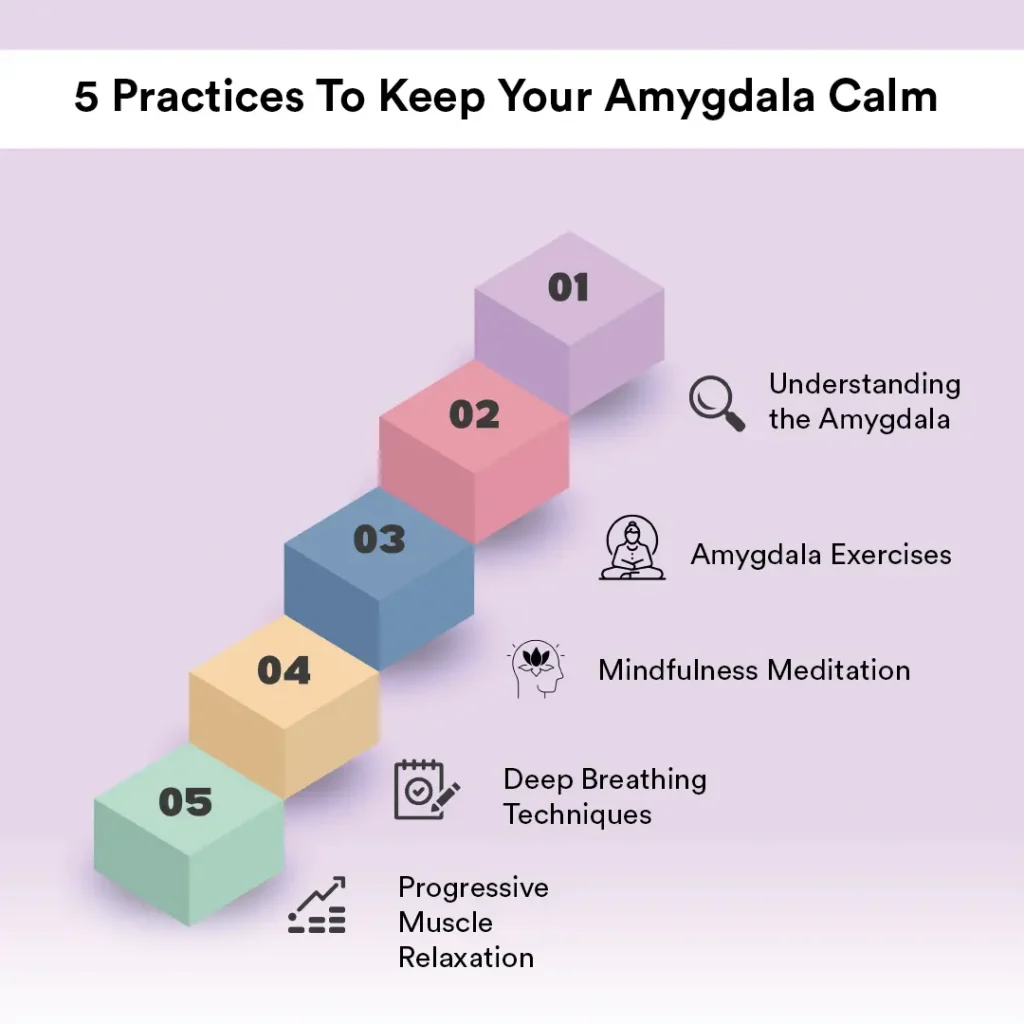Neuphony Research Team | Published on October 5, 2024 | 5 Mins Read

Discover five straightforward methods to calm your amygdala, the part of your brain responsible for processing emotions like fear and anxiety. By implementing these techniques, such as mindfulness and relaxation exercises, you can effectively reduce feelings of stress and promote emotional well-being.
Learn how to cultivate a positive relationship with your emotions through mindful practices. By integrating these approaches into your daily life, you can foster a sense of calmness and inner peace, consequently allowing you to navigate through life’s challenges with greater ease and resilience.
The amygdala, a small but powerful structure in the brain, plays a crucial role in managing emotions and stress. It serves as the brain’s emotional control center, influencing our responses to various stimuli. Understanding the amygdala’s function is essential for maintaining emotional well-being and resilience. An overactive amygdala exercises for anxiety can lead to heightened anxiety and emotional distress, impacting overall well-being. In this blog, we’ll explore five mindful practices to nurture a calm and healthy amygdala.

The amygdala serves as the brain’s emotional control centre, responsible for processing emotions such as fear, stress, and pleasure. It plays a vital role in our fight-or-flight response, helping us react to perceived threats in our environment. However, an overactive amygdala can lead to heightened anxiety and emotional reactivity. By understanding the amygdala’s function, we can learn to manage our emotions more effectively and promote emotional balance.
Engage in activities that promote relaxation and calmness to soothe the amygdala’s activity. Moreover, deep breathing exercises, mindfulness meditation, and progressive muscle relaxation can help alleviate symptoms of anxiety and stress by activating the body’s relaxation response. These exercises promote relaxation and reduce amygdala activation, thereby promoting emotional well-being.
Mindfulness meditation involves focusing on the present moment with awareness and acceptance. By practising mindfulness meditation, individuals can cultivate a sense of calmness and reduce amygdala activation. Mindfulness meditation has been shown to reduce symptoms of anxiety and depression, improve emotional regulation, and promote overall well-being.
Deep breathing exercises can promote relaxation and reduce stress levels by activating the body’s relaxation response. Incorporate simple breathing techniques into your daily routine to soothe the amygdala and promote emotional well-being. Take slow, deep breaths, focusing on the sensation of the breath entering and leaving your body. Deep breathing exercises can be practiced anywhere; moreover, they can be done anytime, making them a convenient tool for managing stress and anxiety.
Progressive muscle relaxation involves systematically tensing and relaxing different muscle groups in the body. This technique can help release physical tension and induce a state of deep relaxation, calming the amygdala and reducing anxiety. To practice progressive muscle relaxation, start by tensing each muscle group for a few seconds, then slowly release the tension as you exhale. Repeat this process for each muscle group, focusing on the sensations of relaxation in your body.

Caring for your amygdala is essential for maintaining emotional health and well-being. You can nurture a calm and healthy amygdala by incorporating mindful practices such as deep breathing, amygdala meditation, and progressive muscle relaxation into your daily life. Start integrating these practices into your routine today to support your emotional resilience and overall well-being. Remember, small changes can make a big difference in promoting emotional balance and well-being.